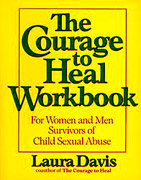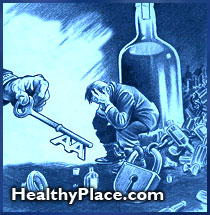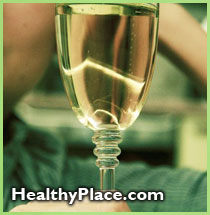Living Life in the Leap
So often in coaching couples about their relationship, I hear one or both partners say, "The passion is gone. We're just roommates. It's just not the same as it was." How sad to have moved away from the excitement that once was.
 While it may be true that with the passing of time some couples tend to tilt away from the consistency of effort that is required to keep them on track, it doesn't have to be that way.
While it may be true that with the passing of time some couples tend to tilt away from the consistency of effort that is required to keep them on track, it doesn't have to be that way.
When you have experienced a pulling away, a slowdown in affection, sex and all the other important things that seemed to matter when you first met, it is often difficult to begin again.
The hardest part of coming out of a slump is acknowledging you are in one. You cannot solve a problem that you cannot admit you have.
When the energy you pour into your relationship has slowed to a trickle, there are some things you can do.
Don't give up! The power to break through a slump is in you.
If you are thinking, "It's no use. I'm tired of doing all the work in the relationship. He/She isn't even trying. I've got to get out!" Think again. Your interpretation of how things are colors what happens next. It alters your forward motion. While in the heat of battle, it may feel easier to leave the relationship rather than do the work you committed to in the first place. The odds are against you.
Making another relationship work most likely will not work if you do not take time to work though the issues you are currently experiencing. It is most difficult to start over in a relationship you are already in, much less begin a new one.
Adversity does not create a great relationship - it reveals it! Upsets create the wisdom necessary to grow in spite of the situation. Upsets stimulate courage to face what's next. To have a problem be an experience of value, you must be attentive to the lesson the upset presents and be courageous enough to do what is necessary to avoid a future setback for the same reason.
It helps when both partners are in agreement. Obviously one person cannot do the work of two. Remember you are in a partnership. It takes two! The sad truth is, you know the relationship is over when one partnerrefuses to work on the relationship.
continue story below
Once the decision to move forward is clear, getting started will be your next hurdle. It requires your personal urgency. It will take a leap of faith. This may feel like you are living your life in the leap; not being sure of what will happen or where you will land. It will also take courage. It will take both partners working together, making new promises and beginning with baby steps.
It's time to make some new choices such as changing your thinking, constructing new behavioral patterns and changing your relationship from one that may be sinking into the abyss, into one you can be proud to be in.
At least now you know what doesn't work. Perhaps this is good. Don't do your relationship that way anymore. The secret is to not repeat past destructive behaviors. It is much wiser to learn to remake the future than to continue to relive the past.
Here are some ideas to help you get your relationship back on track. Investing your time in working together a little each day on a few carefully selected "Slump Busters" will pay off handsomely in your relationship.
Rebuild Your Relationship With Yourself - This is the first step in the right direction. When your relationship with you sucks, you cannot be the kind of person your partner needs you to be. Work on you first. The relationship is a close second. Two broken people cannot fix each other. If you want to fix your relationship, start by fixing yourself.
Only you can do the work that you know must be done. I stress "know" because everyone knows themselves better than anyone does. If you truly want out of your relationship slump, you must begin to be honest with what needs to be fixed within you. Learning to love yourself teaches you to love others. Learn to love you. Only then can you offer the kind of love your partner needs. Only then.
Begin Again - Start fresh. Why is it that when you were first together, everything was great? Each of you were doing the right things. The relationship was on fire! The reasons don't really matter. What matters is that you acknowledge that you both stopped doing the things that brought you together in the first place. Re-acquaint yourselves. Get to know each other again. Begin to woo each other like you used to do. Take a moment right now and recollect some of those special moments. Think about it.
It's never too late to recreate the good times. You may have a fresh start on your relationship any moment you choose. Forgive yourself for getting off track. It will release you from the negative feelings that keep you and the relationship stuck. Refuse to hold on to what may seem unforgivable. Read, Forgiveness: What's it For?. Negotiate some new agreements. It's time to move forward.
The Correct Carrot - What is your relationship carrot (or goal)? What dangles in front of you that keeps you moving forward? What is important to you? To your partner? If you have no good reasons for being together, then the relationship will not work. Spend some timetogether talking about what is important to both of you. Set some mutual relationship goals. Commit these ideas to paper. Undefined goals are unreachable. Goals allow you to control the direction of change in your relationship. To follow a relationship path without knowing where it leads is a mistake.
Ha! Ha! Ha! Ha! Ha! Ha! - Laugh about anything or nothing for 30 seconds each day. If you must, force yourself. Don't be a sourpuss. Drive yourself happy. It doesn't take long for a put-on outburst of laughter to become the real thing. Redevelop your sense of humor. Demonstrate an abundance of smiles for your partner. It's catching. If you think you have nothing to laugh about. . . you're right. Find something to laugh about. What you think about and speak about, you bring about. Force yourself to look at the bright side of things for a change.
 The Perfect Present - Be happy now! It's a choice, you know. Focus on the perfect present and its opportunities rather than worrying about past guilt or failure anxiety. There is no future in the past. There is only right now! Live it to its fullest.
The Perfect Present - Be happy now! It's a choice, you know. Focus on the perfect present and its opportunities rather than worrying about past guilt or failure anxiety. There is no future in the past. There is only right now! Live it to its fullest.
Don't Be a "Lone Ranger" - Obviously you must spend time alone to do the work that is necessary for you to be the person your partner can enjoy being with. However, you must also plan to spend time together. The keyword here is "plan." Stand by your plan. Keep your commitment to be with your partner. Make a collective effort to be together. Work as a team. Together everyone accomplishes more.
Accelerate Your Bounce-Back Time - Disagreements will occur. When they do, bounce back quickly. If an "I'm sorry" is appropriate, muster the courage and say it. Don't waste time wallowing in the stuff of the quarrel. Someone has to be first to break the silence. Let it be you.
Don't Let Your Partner Determine "Your" Behavior - When the relationship is strained, it is often difficult to be your own person. Sometimes you may feel that if you don't do what your partner wants you to do, he/she will be upset and become even more distant. This is where agreements are important. Agree to allow each other to make your own choices, first for yourself and then for the relationship. Remember, women usually respond most to a man's action or lack of action. Men generally respond most to a woman's attitude. So. . . now you know what you need to work on. Men - Action. Women - Attitude.
continue story below
Eat Right - Sleep Tight - Keep Fit - When you are frustrated with the tension present in your relationship it is easy to miss a meal or indulge in inappropriate food, alcohol or drugs. This is another mistake. Pamper yourself. Make a special effort to attend to your diet and your overall well being. Healthy stamina translates into healthy relationship endurance.
You can never catch up on the sleep you missed. Never slight your body on the amount of rest it needs. When you exercise your body, you stimulate your mind. When you are fit, you feel better and are more likely to perform better in your relationship. This is another part oftaking care of you.
Simply the Best! - Compliments given with sincerity are a genuine gift of love. Offer them often. Be generous with praise for your partner. Catch them doing something right. Let them know you noticed. The road to prosperity in relationships is paved with a commitment to generosity toward your partner.
We feel closest to people who cause us to feel good about ourselves. There is absolutely no room for "constructive" criticism in a healthy love relationship. Constructive means to build up. The intent of criticism is to tear down. Those two words do not fit together at all. Criticism by its very nature is only and always destructive, not constructive. Try constructive compliments instead; expressions of love straight from the heart.
Perhaps all of us would be better off if we would take a lesson from the weather. It pays no attention to criticism.
People don't change because they are criticized. They change when the relationship is nurtured with warmth and goodwill that inspires them to please their partner. Appreciation is on the list of top ten needs for most people.
Serve Others - There is nothing quite like serving others to temporarily get your mind off your own dilemma. Visit a friend in need. Take a buddy to lunch. Volunteer to help a needy organization. Do some charity work. Often we subconsciously work though our own stuff when we take side trips to attend to others. Be generous with your giving. Make a contribution to your relationship by giving to others and your relationship will make a contribution to you.
Abandon Your Expectations - At best, this is difficult, however your unfulfilled expectations always cause problems. Know that this is true. I can assure you that thisis part of the problem. Instead of expecting your partner to love you the way you think they should love you, put aside your expectations and allow them to love you the way they love you. Instead be clear about what you need from the relationship and communicate what those needs are to your partner.
This does not mean accepting any kind of emotional or physical abuse. That is totally unacceptable. There is never a good reason to stay in an abusive relationship."NEVER!" If you or someone you know is in a relationship that is either emotionally or physically abusive be sure to read, " Domestic Violence Sucks!"
Exercise Your Power of Choice - This is your greatest gift. Do your best not to repeat the bad choices you have made in your relationship that have brought you to this point in time. Think before you act. This may take some effort because up until now, your focus has most likely been on seeing your partner in a negative light. You get what you focus on. That hasn't worked. It's time to change that. Looking for and seeing the good in your partner has its own way of encouraging better choices.
Touch Me! - There is great healing in the power of touch. Hold hands. Neck in the car. Give your partner a foot or full-body massage. Spend time kissing and caressing. Give your partner an extended hug; one that lasts several minutes. Agree to touch each other every day.
Celebrate Love! - Celebrate your special days in romantic ways. Make a note of your "secret anniversaries" that belong just to the two of you; your first date, the day you first made love, the day you moved into your home, the day you got your marriage license, the day he/she proposed. Plan something special. Rent a "romantic movie" and snuggle while you watch it together. Send a card with your very own loving message.
Turn on the Fun! - Plug in and play. Be a kid again. Plug into what your partner enjoys and then do whatever it takes to make your play time together memorable. Make a commitment to add a dose of fun to your daily routine with your partner.
Think back to some of the great times you've had together and recreate the experiences. If you are going to remain together, youmust plan time to be together for play. You must also return to doing the things that brought you together in the first place. Offer "no excuses" for not being able to plan no less than one night each week to turn on the fun! Having fun in your relationship is not an option; it's mandatory!
Dress Up, Not Down - Go on a date and this time dress to the nines! Make it special. Rent a tuxedo. Buy a new dress. Make advance reservations at a classy restaurant and let everyone wonder about what the special occasion might be. Put all thestuff of the relationship aside for that night and pretend it's your very first date. It's not so important to always dress up. What is important is that you actuallyplan to have a weekly date!
Got Kids? - Never use your children as an excuse to not work on you or your relationship. While it is true that you have an awesome responsibility to care for your children, if you put them first and you last, I suggest that there may be some confusion about your priorities. If you forget to take care of you, you are not leading by example. It's important to be a good example for your kids.
 Some will tell you to never air your disagreements in front of your kids. I disagree. Children are much smarter than we give them credit. They know when you have misunderstandings and arguments.
Some will tell you to never air your disagreements in front of your kids. I disagree. Children are much smarter than we give them credit. They know when you have misunderstandings and arguments.
When your children witness an argument, reassure them that it is not their fault. Demonstrate to them that parents can be angry and still love each other while they are finding solutions to their problems. The skill of teachingfair fighting or at least keeping the decibels at a reasonable level when expressing your concerns is key.
However. . . always arguing and raising your voices in front of the children is inappropriate. Most high-level disagreements should be out of hearing range of the kids. Strive for balance. Your home is a school. What are you teaching your children?
Reward Your Partnership for Doing the Right Thing - Stay on track. Do what's right. Do unto your partner what you would have them do unto you. Indulge in honoring your combined efforts. Buy your partnership a trophy from a trophy shop. Have it engraved. Present it to each other in your very own private ceremony where you renew your promise to each other to continue to work together.
Dazzle Your Partner Unexpectedly - Predictability breeds boredom. Be spontaneous. Do something completely out of character. Send a mushy greeting card for no reason. Suddenly stop beside the road, pick a wild flower, hand it to your partner and say, "I love you!" and be on your way. If you are annoyed because your partner spends too much time watching football, surprise him and watch the game with him. Pop some popcorn and bring his favorite beverage on a tray. Light some candles in the bathroom and treat her to a warm bubble bath followed by a 20-minute foot message. Use your imagination.
continue story below
Romantically impaired? Read, 1001 Ways to Be Romantic by Greg Godek.
Let There Be Light - Don't take life or yourself so seriously. Lighten up! There will be screw-ups and breakdowns. Roll with the punches. If you make a mistake, don't let it get you down. Acknowledge the mistake, take corrective action and continue moving forward. Poke fun at yourself, but never at your partner. That's their job. Blessed are they who can laugh at themselves for they shall never cease to be amused. Smile often.
Tackle Talk - Communicate. It is often most difficult to restart this process. AND it is the most important way to contribute to your relationship. If you have both been shut down. . . recommit to opening up to each other. Not talking can cause a serious disconnect from the one you say you love. My wife and I made an agreement before we were married. We agreed to talk about anything and everything, all the time. It has been the most important agreement and also the most difficult agreement to keep. Without an agreement in place, neither partner has a promise to communicate.
Talk the Talk - Instead of speaking only of what has been. . . revise your way of speaking about what you want and need in your relationship today. Pour all of your energy into speaking only good words about your relationship. So many times I hear partners speaking to their friends in a negative way about their partner. It you cannot say something good about them, it is better to say nothing at all. If you speak or think only of the problem, hopelessness and despair, you will get more of that.
Weigh your words. 500 of the most commonly used English words have 13,000 meanings. Choose your words carefully. They become your reality. Wherever your attention is centered, your thoughts will focus, and since action follows thought, the things you keep looking at and speaking about are going to determine what you will experience. Your relationship lives on the tip of your tongue.
Never say things to your partner that you know will trigger past bad experiences. To do so is antagonistic and just plain stupid. In this scenario, remember, a closed mouth gathers no foot.
Make an effort everyday to tell your partner how much you appreciate them. Talk tenderly. Use terms of endearment, like "Honey," "Sweetie," "Baby," etc. Say "thank you." On the way to the office? Say "Goodbye, sweetheart" instead of just "Goodbye." Whisper sweet nothings! Act loving toward each other daily and you will feel more loving toward your partner.
I hate the term "Fake it till you make it," however it's true that when you begin to visibly act more enthusiastic about your relationship, the enthusiasm is contagious. Talking the talk is one thing. Speak only good of your partner to yourself, to your partner and to others. Only good. Walking the walk should also be a high priority.
Nurture your partner with words of love, understanding, acceptance and forgiveness. Nurture: To nourish, educate, grow or develop; cultivate.
Planet Positions Got You Spaced Out? - Let go of having to "be right!" Healthy, full functioning couples find happiness is sharing their differences instead of being indifferent to them. They discover happiness in discussing, in a loving way, areas of mutual concern. It's true! Men and women are truly different, AND there are similarities.
Healthy couples identify problems, talk openly and honestly about their differences and choose workable solutions. Integrate your mutual intentions for a healthy, happy relationship or the relationship will evaporate.
Even though it may appear that you are from different planets because you share so little in your communication, it is possible for you to lay down your ray guns, seek peace and choose to travel in the same orbit, working together to celebrate your differences in ways that mutually benefit the relationship. Always remember: If God brings you to it, He will bring you through it!
Straight Shooting - Trust is the foundation of a healthy love relationship and it must be earned. Make an agreement to only allow truthful disclosure in your relationship. Not telling the truth about how you feel, only telling part of the story, withholding your wants and needs to your partner slowly erodes the trust in your relationship. Without trust there can be no effective communication; without effective communication there can be no genuine intimacy. Never lie to your partner. Honesty always wins.
Push the Envelope - Develop a mutual incentive that will assist you in motivating each other to be the best you can be. Be inventive in providing the kind of reward that can be your inspiration to continue the process. Never stop. NEVER! Have the incentive be bigger than you can imagine and something you can both be excited about, something that will call forth the extra effort required to get you both back in the groove. How about a romantic getaway in the mountains for a long weekend? Use your imagination.
Mutual agreement is important. Mutually agree that you will do something exciting together when you can both agree that your new relationship has reached a higher plateau.
 It is important to understand that a marriage partnership is never 50/50. Relationships seldom feel easy, however, a relationship is less of a struggle when two people agree to do whatever it takes to make it work. Whatever it takes doesn't mean "giving it your best shot and if it doesn't work, you move on." It means doing whatever it takes. Try 100/100. That works much better.
It is important to understand that a marriage partnership is never 50/50. Relationships seldom feel easy, however, a relationship is less of a struggle when two people agree to do whatever it takes to make it work. Whatever it takes doesn't mean "giving it your best shot and if it doesn't work, you move on." It means doing whatever it takes. Try 100/100. That works much better.
Partners Profit - Share the wealth of information you have learned about yourself with your partner. Agree to share relationship tips and techniques in a loving way.Agree is the key word. Be careful that in your sharing you don't consistently "point the finger" by suggesting tips that you know thatthey need. A better way might be to share the insights you have noticed that have deeply affected your thinking and your behavior.
Trash or Treasure? - Start a scrapbook. Stash your memories. Save special greeting cards, matchbook covers that remind you of great times past, snapshots, a pressed red rose, ticket stubs, a handwritten poem, a funny valentine. One of my own lifelong desires was to see Frank Sinatra in concert. After the concert my friend, Sandy and I had the two tickets and the program framed to preserve the unforgettable memory of our very special time together.
Breathing Space - Give each other room to grow. No one can grow in the shade. If you are always hovering over your partner, you are literally smothering the love that could be yours. Partners need time alone. They need space. Give it willingly. Take time to be alone with your thoughts. This is another way to attend to your needs.
Manage Your Manners - Be kind to each other. Treat your partner with respect and dignity. Honor your beloved. Be the first to offer to help your partner in ways you may not have done before. Extend courtesy. So often we treat our friends better than we treat our partner. Don't fall into this trap. It's a dead end street. Remember, "Do unto others as you would have them do unto you?" It works.
continue story below
Count Your Change - Relationships never move in straight lines. They wander. And create opportunities you'd never expect. Evaluate your progress. Embrace change. Do not resist it. The smallest pebble in your shoe will irritate you until you do something about it. Be excited about the changes that occur in your relationship. Learn from them. If you think you do not have a choice in managing change, think again. The choices you have made in the past have caused the change that brought you to this moment in time.
Do your relationship differently. Your partner may take a while to notice and perhaps even longer to respond. Be patient. Notice small steps in the right direction. Praise improvement. It gives rise to inspiration and encourages them to continue.
Life (and your relationship) is not a snapshot! It's a moving picture. Notice what changes you are experiencing. Share them with your partner. Often a change in attitudetoward your partner will bring about an attitude of change from your partner. Some partners only change when they feel the heat. Others, when they see the light. The latter is preferable.
Plant the Right Seeds - Always remember. . . you reap what you sow. You don't plant tomatoes and expect corn to grow. Likewise, you don't sow seeds of bitterness, resentment, anger, etc., and expect your relationship to thrive. Seeds of doubt clutter up your relationship garden.
When you plant corn, if it does not grow well, don't blame the corn. Look for reasons it is not doing well. When you find the reasons, (and you may have to dig deep for them), take action and do what needs to be done.
The same goes for planting good thoughts. They will never grow unless nurtured and nourished with love, understanding, acceptance, and forgiveness. Although blaming has no redeeming value, if you must place blame, you will be wise to accept responsibility and know that the blame goes to the person looking back at you in the mirror.
Put Passion Back in Fashion - Passion is not only about sex. It's about having strong feelings about something. Ever hear of a crime of passion? Passion means many things to many people. It may be a burning desire to reconnect with your partner in conversation. Demonstrate passion by passionately working together on your relationship. It can blaze new trails.
No sex? Not much intimacy anymore? Been a long time since you actually made love? Too long? Hummm! Know this is true: "Relationship problems always show up in the bedroom." Many couples avoid sex when marital issues surface because they feel emotionally distant. Often couples who come to me for relationship coaching in the sexual area discover that it's not about sex at all.
A lack of sex is nearly always a symptom of something that needs fixing in the relationship. It's about fixing all the little nuances that bring on the upsets in your relationship. It is difficult to be turned on to make love when there are upsets with your partner you have yet to address. Anger, resentment, disappointment, bitterness and stress do not make good bed partners. Unless there is a medical problem, when you fix these problems, usually the sex will take care of itself.
Sex is good and pleasure is good for you. Have a desire for more info on sex? Read, Red Hot LoveNotes for Lovers.
Simmer Down - Manage your anger. If you have a complaint, only raise it when you are not feeling angry about it. As best you can, speak with loving words and keep it short and to the point. Don't lecture. Keep your examples current. Never use past hurts to illustrate current gripes. It only opens up old wounds and causes your partner to feel that they can never stop paying for past mistakes.
Avoid words like, "never" and "always" or things like, "You're just like your mother/father!" This only pushes your partner's panic buttons and escalates the disagreement.
When your partner expresses a complaint/grievance/criticism, rather than argue the point, listen nondefensively. Rather than counter attack, search for some small part with which you can agree, and acknowledge it. If an apology is called for, offer it. Listening nondefensively can put a damper on an argument expeditiously. Now. . . you can work on a solution together.
Date-Your-Mate - This is especially important if you are married. Once each week plan to spend some time together. I know. You have kids. It's easy to use your children as an excuse. Give it up. Hire a trusted friend to do an overnight and head for the "No-Tell Motel" to light the fire.
 Dinner dates are great too, but be creative and discover other options. Take a "hand-in-hand" walk. Visit an arcade and play some games. Think different! Put together a picture puzzle.
Dinner dates are great too, but be creative and discover other options. Take a "hand-in-hand" walk. Visit an arcade and play some games. Think different! Put together a picture puzzle.
Schedule a "Play Date" where you play and have fun together. Go dancing. Have an extended dinner in a nice restaurant. Just a few hours to connect with each other, away from family obligations. No conversations about issues. Focus on having "fun" and really "being" together. It'll make a world of difference in your relationship.
Be Your Partner's Hero - A hero is defined as one that is much admired or shows great courage. The partner who is willing to devote the time and energy necessary to work on making the relationship one they can be proud to be in, is a hero. It takes courage to step up to the plate and take a standfor the relationship. It takes even more courage to begin to "do whatever it takes" to make it work. Talk's cheap! Show me! Be a hero.
Value Added - Conventional business wisdom says that companies maintain market leadership by constantly adding value. Failing to do so is a sure path to demise. The same principle can be applied to relationships. What are you doing on a daily basis to add value to your relationship? Remember everything you do either leads you closer or further from your relationship goal. Perhaps you might consider reinventing your relationship model to include some of the more than 50 ideas presented in this article.
Audioapathy - Empathic listening is a choice. Audioapathy is a word I coined to describe the condition often experienced when partners become apathetic about listening when their partner talks with them. It is a dreaded dis-ease that can poison your relationship. Although it appears that men are more affected than women, some women also get it.
continue story below
Hearing is involuntary. You can be sound asleep and still hear something or someone, but listening is voluntary. It is an intellectual and emotional choice. It implies effective communication between the sender and the receiver, which hearing does not.
It is a wise partner who, when their partner is talking, puts down the evening newspaper or turns the TV off, makes eye contact and truly listens to what their partner is saying. Very wise. It may be difficult to listen to what they have to say, however, if the truth hurts - be grateful. When your partner talks, listen for thetruth about what they are saying instead of going on the defensive. That only keeps you stuck.
It may take courage for your partner to express their feelings if they haven't been used to doing so. To immediately defend your own position (or to disagree or argue) invalidates your partner's feelings and usually serves to turn off future sharing possibilities. Listen for the opportunity to assist the relationship by taking responsibility for what you may be doing thattrips their trigger and causes them to make a choice to feel the way they do.
Empathic listening gets inside your partner's frame of reference. You see their world the way they see it, you understand their paradigm, you understand how they "feel."
Apathetic listeners breed contempt, resentment and often the person who desperately needs to be heard eventually shuts down. A lack of effective communication is the number one problem in relationships.
Listen more and talk less. You can't learn anything when you're talking. How do you spell success in a relationship? Be wise. Listen.L-I-S-T-E-N.
Voice Power - Practice voice modulation; change your voice pitch and avoid crescendos at all cost. Raising your voice to your partner (some would call this yelling), is the worse form of communication. It is emotionally abusive, unfair and shows a high level of disrespect for your love partner.
If your partner raises their voice, whether man or woman, back off physically from them, lower your voice to slightly more than a whisper sending a signal that you are not willing to listen if the yelling continues. Let them know that you are willing to mutually discuss the situation in a calm and respectful manner.
If you cannot peacefully reach this agreement, leave the scene of the disagreement. Generally speaking, a louder voice demands attention. If you go away, you deny them the attention they so disrespectfully demand. It is a smart partner who withdraws rather than becoming a partner in a shouting match.
A quiet loving voice manner is respectful and will always get you more of what you want. It is not necessary to raise your voice when talking face-to-face. It demonstrates immaturity and is childish. Watch your decibels.
Discover Your Partner's Hot Buttons - Push them spontaneously. I'm not talking about the ones you've been pushing, but the ones you should push. Like turn-ons. Know what makes your partner happy, excited and blissful. You must pay attention to do this. Make notes if you must to help you remember. Often what they need is only a warm and tender hug, a kiss on the neck or an unexpected full-body massage.
- "The range of what we think and do is limited by what we fail to notice. And because we fail to notice that we fail to notice, there is little we can do to change until we notice how our failing to notice shapes our thoughts and deeds." - R. D. Laing, Scottish Psychiatrist
Pay attention!
Search Engine - Get your engine going and search for solutions to small issues to head them off before they grow into something unmanageable. Plan ahead. Preventative maintenance works. Take a look at all the problem areas of your relationship and begin the work that needs to be done.
Remember, a relationship is something that needs to be worked on all the time, not only when it is broken and needs to be fixed.
Write! "Right!" - Journal. Put your private and personal feelings on paper. It is important to get your thoughts out of your head and make them tangible by putting them in writing. Often the thoughts you have about your relationship are disconnected from the real issue. Your mind skips from one thought to the next so rapidly you have no time to focus on thinking about what really matters. When you cansee your thoughts on paper it helps you to more effectively deal with the situation. Read, For Your Eyes Only for a more in depth look at journaling.
 Time-out - Make time to think about your relationship, your partner and the progress you are making. Thinking can stimulate your mind to action. Listen to your heart. It always tells the truth. It is far better to concentrate on the good than to dwell on the hurts of the past. Listening is the foundation for concentration. In yourtime-out look for the truth about the direction you need to take.
Time-out - Make time to think about your relationship, your partner and the progress you are making. Thinking can stimulate your mind to action. Listen to your heart. It always tells the truth. It is far better to concentrate on the good than to dwell on the hurts of the past. Listening is the foundation for concentration. In yourtime-out look for the truth about the direction you need to take.
When difficulties arise, be a relationship tweaker. Don't wait. Do something, preferably with your partner, that will quickly get your relationship back on track.
Remember, there is always more than one way to do anything. There is no "one way." There are only many ways to reach your relationship goals. You have but to be open to them. Together, choose a solution that you can both support and fine-tune it. Instead of living with old memories, create some new ones. . . together. Think openly, with no boundaries or rules and watch the creative juices flow and the ideas come forth.
Also be aware that ideas are a dime a dozen, however the people who put them into action are priceless. Studies have shown that as an activity becomes more difficult, the brain becomes more active. Take time to ponder the number of choices that are available.
Mission Possible - Keep the faith. When you decide to recommit to your relationship, you open your relationship to infinite possibilities. Harbor high hopes. Anything is possible when you really believe it and take the appropriate action to achieve it.
Back to the Future - Remember the good times. To stay motivated during the tough times, take some time to go back in your memory to when you were first together. What was it that first attracted you to your partner? Take a moment and look to see those qualities now. Banish negative thoughts about them. Take care to notice the things you admire about your partner, no matter how small and next, tell them. The more you focus on the good, the more good you will see.
continue story below
No Excuses! - If you truly have a desire to have your relationship work, you cannot allow yourself to offer excuses. No excuses! There are only results or reasons why. The reasons why are the excuses we come up with to avoid taking responsibility for our relationship and to avoid doing something we may be afraid to do and know must be done.
Holy! Holy! Holy! - You must never forget the importance of the spiritual side of your relationship. Marriage is sacred. So are the vows you make. Making a relationship work should not be totally dependent upon what you or your partner do or do not do. God, a Higher Power - or whatever you choose to call what you believe in - can only inspire you to make the right choices. He alone cannot do it for you. You and your partner must do the work.
Listen for God's soft whisper. He speaks to you in the stillness of daybreak and in the midst of conflict. Are you listening? I highly recommend the following list of priorities: God, you, your relationship and your work - in that order!
Give Up Whine - In relationships there is no fine whine. Get a grip. Whining does not work. Neither does dissing, ranting and raving. Especially if it always about the same old thing. The more you run over a dead cat, the flatter it gets. Do you want to get closer to the one you love? Practice the "three Cs." Don't criticize, condemn or complain. Constantly complaining is a form of whining. It is also often called "nagging." Quiet, please. Instead, catch your partner doing something right and shower them with praise and adoration.
Stay With It - Work the program. Make it a lifetime commitment. Never stop. We often get so wrapped up in our everyday experiences that we forget that our relationship comes first. It does, you know. Make it a habit to work together on your relationship. When you become discouraged, seek out someone in your support system, perhaps a friend whom you know will be your encourager. To paraphrase Vincent Van Gogh, "When you hear a voice within you saying, 'You're not going to make it,' than by all means continue making better choices and that voice will be silenced."
Stick with it and your partner will stick with you. Positive repetition builds your relationship reputation. Become known to your partner as someone who is consistent with their best efforts; someone with commitment, perseverance and dedication to serving the relationship.
Preventative Maintenance - Don't allow your relationship to crash and burn. Perhaps there should be "black boxes" in relationships. That way when a major relationship crash occurs you would be able to analyze more correctly what caused the problem. Forensic experts know that in analyzing black boxes, any deviation in any sequence of events would have prevented the crash. That's good to know.
Adjustments in your own position about your relationship can and will make a BIG difference. Giving up being "right" about YOUR position is a great first step. You'll be amazed! Make this commitment and it will transform the "rumbles" in your relationship to "ripples" almost immediately! Ask yourself, "Would I rather be right or happy?"
Relationships are something that must be worked on all the time, not only when they are broken and need to be fixed.
Agree as partners to keep your relationship in a constant state of repair by continually working on it. This is a good way to prevent future issues from occurring. Sustain your relationship by periodic visits to those best in a position to help you. Got a relationship problem you cannot solve? Relationship coaching is a wise choice.
My friend, Dr. Michael LeBoeuf, says "A mistake only proves someone stopped talking long enough to do something." People in relationships make mistakes. The key is to learn from your mistakes and push forward. Never stay hooked to the past. The past is an energy drain. Focus on what you want, not on what you don't want.Practice constructive doing. You make fewer mistakes that way.
The miracle of error is the access to opportunity it presents. Problems validate what you are committed to. They get in the way of your commitments, therefore they validate what you are committed to. If this were not true, we couldn't call them problems. Accept responsibility for your problems. If you don't,you are the problem.
It is infinitely wiser to experience relationship problems as those situations which lure you on to self-discovery than to be stopped by the unpleasantness of the circumstances and be shut down to the possibilities the problem presents.
 There are no accidents. Relationship problems occur for a reason. It is sometimes difficult to find the good in what appears to be all bad. There are important lessons to be learned in every circumstance. Problems by design are repetitive. They come back if you don't learn from them and do something to prevent their reoccurrence.
There are no accidents. Relationship problems occur for a reason. It is sometimes difficult to find the good in what appears to be all bad. There are important lessons to be learned in every circumstance. Problems by design are repetitive. They come back if you don't learn from them and do something to prevent their reoccurrence.
Be a Smarty Pants - Yearn to learn. Learn more about having healthy and successful relationships by visiting quality relationship sites on the Internet. Develop a need to read. Join a book club and purchase relationship books. Subscribe to relationship eZINEs. Attend relationship seminars. Get relationship coaching. You can never know too much about relationships.
Count Your Blessings! - Look for the basic goodness in your mate. What do you like best about them? Make a list of all the reasons you are together. It will help you to stay fixed on the positive and focused on what matters the most in your relationship. Believe that the difficulties in relationships are challenges that can be understood, and once understood and worked on "together," they eventually go away. Trust in the goodness of your partner. What you think about and speak about, you bring about.
Leave Work at Work - Dave Barry once said, "You should not confuse your career with your life." I agree and would add, "or your relationship!" Your relationship must come first, then your career.
Hmmmm! What About Housework? - Guys! This one is for you. Nowhere is it written that your sweetheart should be responsible for all the housework. No husband has ever been shot while doing the dishes, taking out the trash or running the vaccum sweeper! Think about it!
Recovery from a relationship slump is not only about reconnection. It's about collaboration. My friend, Ian Percy, CSP, has written a wonderful article called, "The Joy of Collaboration."
Make some new promises! Make a promise to your partner to use this list of "Slump Busters" to assist in the growth of your relationship. A commitment to do so is a healthy step in the right direction. A healthy love relationship is the reward.
continue story below
You can do the work of relationships by design or default. The choice is up to you!
What can you expect if you begin to do the work of a healthy love relationship? Miracles in your relationship, that's what! The reward for better choices is a love that grows. . . and grows. . . and grows!
next: How Do You Work On You?













 Author Keith Smith was a guest on the HealthyPlace Mental Health TV Show. He talked about his abduction at 14 years of age by a stranger. After over 30 years of silence, Keith is dedicated to bring public awareness of male sexual assault. Watch the video right here.
Author Keith Smith was a guest on the HealthyPlace Mental Health TV Show. He talked about his abduction at 14 years of age by a stranger. After over 30 years of silence, Keith is dedicated to bring public awareness of male sexual assault. Watch the video right here.
 In the preceding chapters you have learned something of alcoholism. We hope we have made clear the distinction between the alcoholic and the nonalcoholic. If, when you honestly want to, you find you cannot quit entirely, or if when drinking, you have little control over the amount you take, you are probably alcoholic. If that be the case, you may be suffering from an illness which only a spiritual experience will conquer.
In the preceding chapters you have learned something of alcoholism. We hope we have made clear the distinction between the alcoholic and the nonalcoholic. If, when you honestly want to, you find you cannot quit entirely, or if when drinking, you have little control over the amount you take, you are probably alcoholic. If that be the case, you may be suffering from an illness which only a spiritual experience will conquer.
 While it may be true that with the passing of time some couples tend to tilt away from the consistency of effort that is required to keep them on track, it doesn't have to be that way.
While it may be true that with the passing of time some couples tend to tilt away from the consistency of effort that is required to keep them on track, it doesn't have to be that way. The Perfect Present - Be happy now! It's a choice, you know. Focus on the perfect present and its opportunities rather than worrying about past guilt or failure anxiety. There is no future in the past. There is only right now! Live it to its fullest.
The Perfect Present - Be happy now! It's a choice, you know. Focus on the perfect present and its opportunities rather than worrying about past guilt or failure anxiety. There is no future in the past. There is only right now! Live it to its fullest. Some will tell you to never air your disagreements in front of your kids. I disagree. Children are much smarter than we give them credit. They know when you have misunderstandings and arguments.
Some will tell you to never air your disagreements in front of your kids. I disagree. Children are much smarter than we give them credit. They know when you have misunderstandings and arguments. It is important to understand that a marriage partnership is never 50/50. Relationships seldom feel easy, however, a relationship is less of a struggle when two people agree to do whatever it takes to make it work. Whatever it takes doesn't mean "giving it your best shot and if it doesn't work, you move on." It means doing whatever it takes. Try 100/100. That works much better.
It is important to understand that a marriage partnership is never 50/50. Relationships seldom feel easy, however, a relationship is less of a struggle when two people agree to do whatever it takes to make it work. Whatever it takes doesn't mean "giving it your best shot and if it doesn't work, you move on." It means doing whatever it takes. Try 100/100. That works much better. Dinner dates are great too, but be creative and discover other options. Take a "hand-in-hand" walk. Visit an arcade and play some games. Think different! Put together a picture puzzle.
Dinner dates are great too, but be creative and discover other options. Take a "hand-in-hand" walk. Visit an arcade and play some games. Think different! Put together a picture puzzle. Time-out - Make time to think about your relationship, your partner and the progress you are making. Thinking can stimulate your mind to action. Listen to your heart. It always tells the truth. It is far better to concentrate on the good than to dwell on the hurts of the past. Listening is the foundation for concentration. In yourtime-out look for the truth about the direction you need to take.
Time-out - Make time to think about your relationship, your partner and the progress you are making. Thinking can stimulate your mind to action. Listen to your heart. It always tells the truth. It is far better to concentrate on the good than to dwell on the hurts of the past. Listening is the foundation for concentration. In yourtime-out look for the truth about the direction you need to take. There are no accidents. Relationship problems occur for a reason. It is sometimes difficult to find the good in what appears to be all bad. There are important lessons to be learned in every circumstance. Problems by design are repetitive. They come back if you don't learn from them and do something to prevent their reoccurrence.
There are no accidents. Relationship problems occur for a reason. It is sometimes difficult to find the good in what appears to be all bad. There are important lessons to be learned in every circumstance. Problems by design are repetitive. They come back if you don't learn from them and do something to prevent their reoccurrence. I spent 18 months in AA, going virtually every day, and while I was there, I was a paragon of "sobriety". But I was beginning to feel crazy in AA. When I questioned the dogma, I was told to write a 4th step. When I tried to challenge the idea of powerlessness (which I think is one of the single most damaging concepts in AA), I was told to get on my knees. I was in denial. Call my sponsor. I hated the disease theory because it always seemed to me to just be a big fat excuse for immature behavior. But still, I was so programmed that I began to feel that my failure to accept the program was my fault. Plus, I was terrified to leave because they had me convinced that I would wind up in a jail or an institution or dead.
I spent 18 months in AA, going virtually every day, and while I was there, I was a paragon of "sobriety". But I was beginning to feel crazy in AA. When I questioned the dogma, I was told to write a 4th step. When I tried to challenge the idea of powerlessness (which I think is one of the single most damaging concepts in AA), I was told to get on my knees. I was in denial. Call my sponsor. I hated the disease theory because it always seemed to me to just be a big fat excuse for immature behavior. But still, I was so programmed that I began to feel that my failure to accept the program was my fault. Plus, I was terrified to leave because they had me convinced that I would wind up in a jail or an institution or dead. Rarely have we seen a person fail who has thoroughly followed our path. Those who do not recover are people who cannot or will not completely give themselves to this simple program, usually men and women who are constitutionally incapable of being honest with themselves. There are such unfortunates. They are not at fault; they seem to have been born that way. They are naturally incapable of grasping and developing a manner of living which demands rigorous honesty. Their chances are less than average. There are, too, those who suffer from grave emotional and mental disorders, but many of them do recover if they have the capacity to be honest. Our stories disclose in a general way what we used to be like, what happened, and what we are like now. If you have decided you want what we have and are willing to go to any length to get it then you are ready to take certain steps.
Rarely have we seen a person fail who has thoroughly followed our path. Those who do not recover are people who cannot or will not completely give themselves to this simple program, usually men and women who are constitutionally incapable of being honest with themselves. There are such unfortunates. They are not at fault; they seem to have been born that way. They are naturally incapable of grasping and developing a manner of living which demands rigorous honesty. Their chances are less than average. There are, too, those who suffer from grave emotional and mental disorders, but many of them do recover if they have the capacity to be honest. Our stories disclose in a general way what we used to be like, what happened, and what we are like now. If you have decided you want what we have and are willing to go to any length to get it then you are ready to take certain steps.